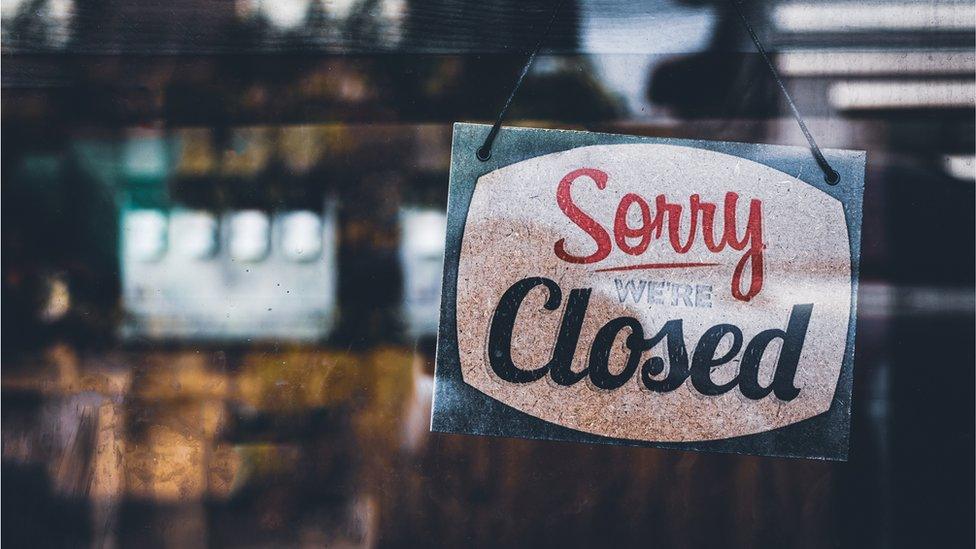Covid: What's it like to be on furlough for a year?
- Published
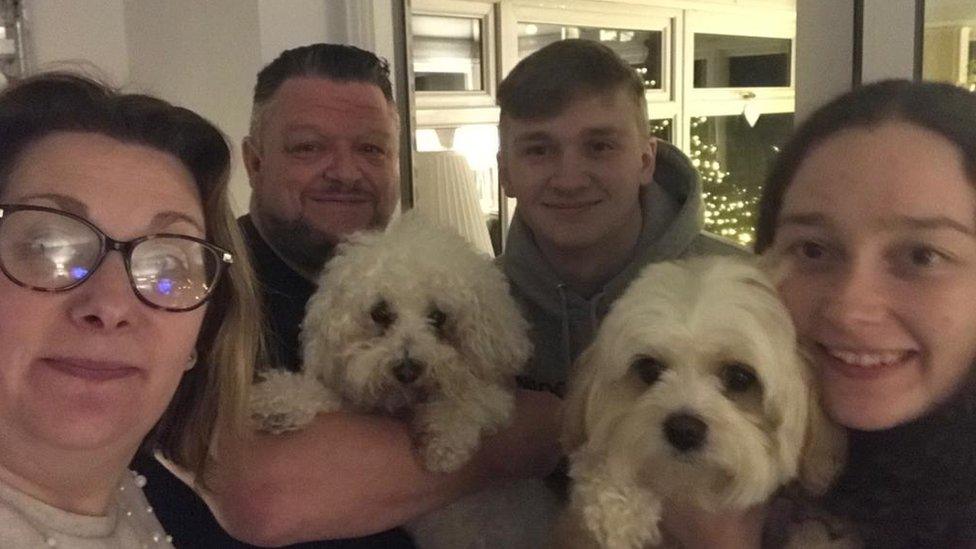
Nigel Collins has gone from being away from home for four nights a week to spending all his time at home
When Nigel Collins stops to chat to someone he has not seen for a while, he knows how they will react when he says he is still on furlough - their eyebrows go up in surprise. "Oh really, a year now?" they inevitably say.
It has been 12 months since the furlough scheme was introduced and some have found themselves on and off it, as lockdown restrictions have changed.
But some workplaces have found it impossible to return to any sort of normality, including Nigel's.
Nigel, from Ebbw Vale, Blaenau Gwent, works for a company that makes foldable mobility scooters, aiming to give older people freedom to get out and about.
His job as a sales manager usually takes him away from home for four nights a week.
"The beginning part was a little bit of a high," he said.
"When I was home my wife had loads of jobs for me to do in the garden, when the weather was fine, and some decorating jobs to do inside.
"But it didn't take long for me to realise what furlough meant and being in lockdown and not being able to go out."
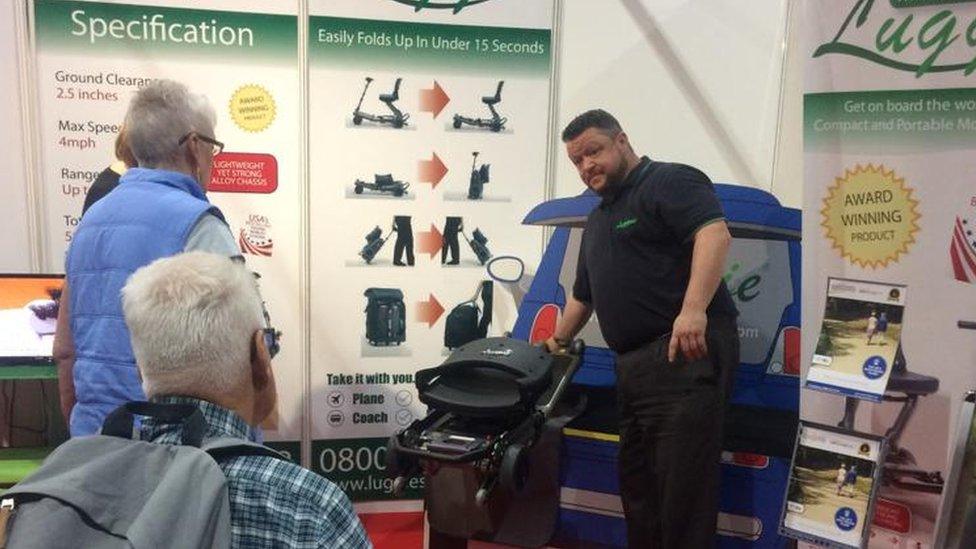
Nigel works for a company that makes foldable mobility scooters
Furlough was one of the Oxford English Dictionary's Words of the year for 2020.
The scheme, which has helped pay the wages of millions of people who may otherwise have lost their jobs during the coronavirus pandemic, has been extended until 30 September.
Furlough applies across the UK and covers up to 80% of an employee's salary for the hours they cannot work, up to a maximum of £2,500 per month.
From July, the UK government will contribute 70% and employers will have to pay 10% for hours not worked
In August and September the government will pay 60% and employers 20%
Nigel says he still struggles with the concept.
'In a rut'
"You feel like you are a burden on the government," he said.
"I have never been out of work since I was 17, I have always worked. And to be told not to work, it's completely mind-blowing for me.
"I did have days where I found myself going to bed at two or three o'clock in the morning and then waking up at midday, if not a bit later than that some days.
"That's not me, that's not me at all. It's difficult when you get into that rut, to be able to get back out of it again."
Nigel's now feeling positive that his company can get back to business this year with the success of the vaccine rollout, and said he knows he is "fortunate" to still have his job.
'It gets you down'
Sian Griffiths from the village of Rhyd-y-clafdy, just outside Pwllheli in Gwynedd, is also desperate to get back to work.
The 42-year-old works as a cleaner at a hotel and has been on furlough since March 2020.
Self-contained tourist accommodation - including hotels with en-suite rooms and cottages - can reopen from 27 March, providing a potential boost to the tourism industry ahead of Easter.
Money worries have added to what Sian said had been an "horrendous" year.
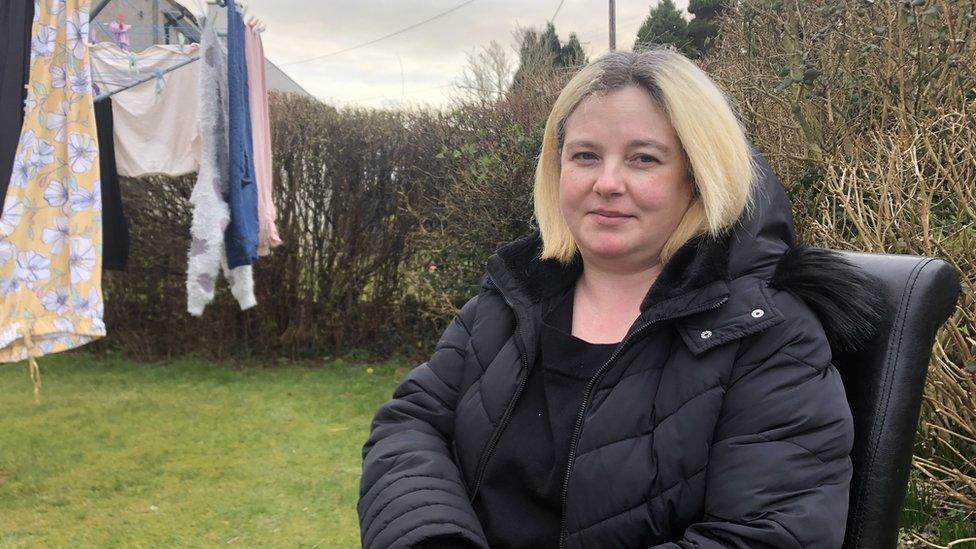
Sian works as a cleaner at a hotel
"I'm getting into a lot of debt," she said.
"Bit by bit you are paying it back every week, you are paying back but you are still living on it.
"You're still paying interest on what you have borrowed. You don't get out of it basically. It will take time."
Sian said she missed the routine of work.
"Every day when you get up in the morning you know what you are going to do, when you go to bed at night, you know exactly what you are going to do the next day - it's like a ritual.
"It gets you down," she said.
Josh Jones says he had "no real sense of purpose" until he began volunteering at a vaccination centre
Josh Jones, 22, from Cwmbran in Torfaen, has also struggled to find ways to keep himself busy during his year on furlough.
He has recently started volunteering at the vaccination centre at the Cwmbran Stadium.
The 22-year-old lives at home with his parents and works for Torfaen Leisure Trust, which manages facilities including Pontypool Ski Slope, Fairwater Leisure Centre, and Pontypool Active Leisure Centre.
On 22 April, ministers in Wales will consider when gyms, community centres and organised activities can reopen.
"I have always been an active person, I've never wanted to stay still for more than two minutes," said Josh.
"I would come here, do my swimming lessons and then the office job itself, so I didn't really get to spend a lot of time at home really.
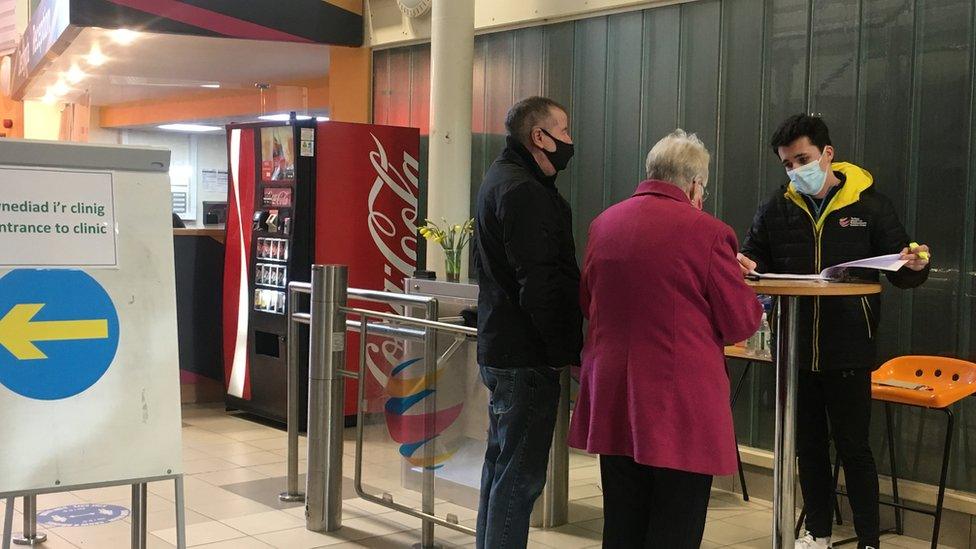
Josh has been volunteering at a vaccination centre
But he said it had been nice to spend time with his parents, who are retired.
"We've been doing things in the garden. I tried to adopt more of a positive attitude and just tried not to moan around them, because I understand from their point of view, that even though I am young and want to get out and see my friends, it's just as hard for them."
Josh says volunteering has given him back "a reason to get up in the morning".
"We've had 93-year-old women who hasn't seen anyone for like a year," he said.
"To have someone who is nearly breaking down in tears in front of you because they've had no social contact at all, and this is such a massive change to walk into a centre like this where there are staff and nurses - it's lovely for them and us.
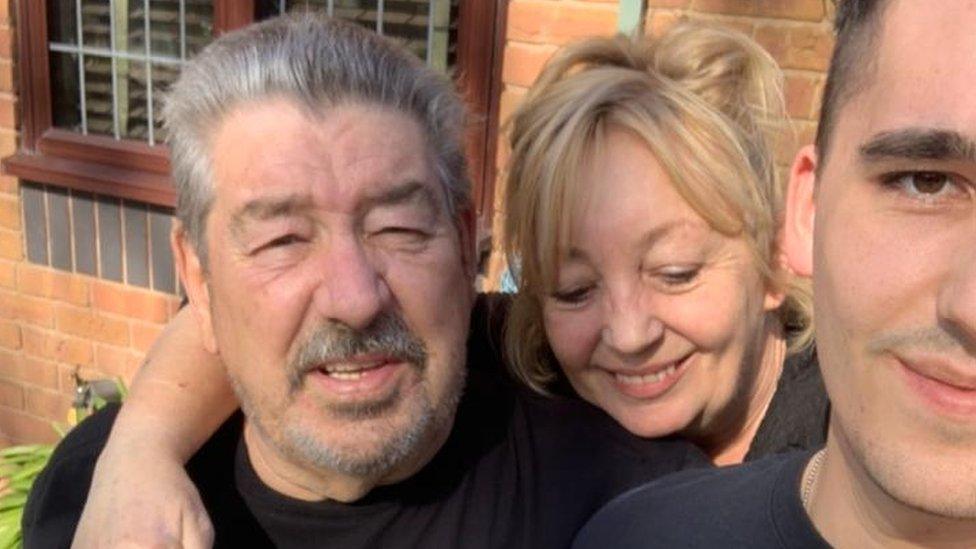
Josh has enjoyed spending more time with his parents
"Because I have been at home for a year and only seen my mum and dad really, and now I am seeing hundreds of people come through a door which has been closed since March last year."
Even thought the furlough scheme has been extended until September, Nigel, Sian and Josh said they all hoped they would be back to work before then.
- Published30 September 2021
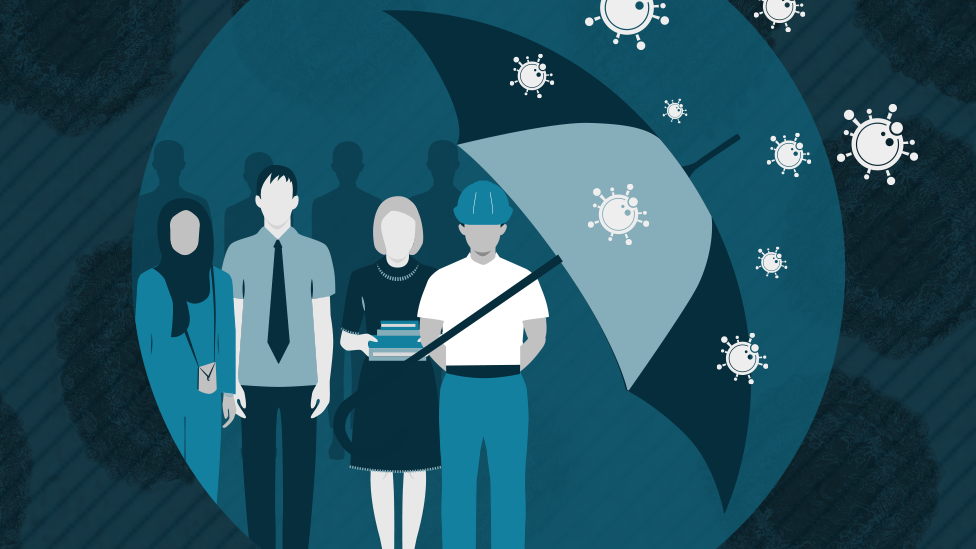
- Published13 January 2021

- Published28 January 2021
